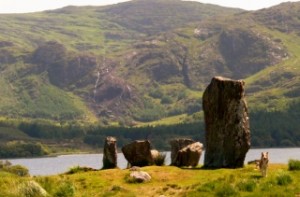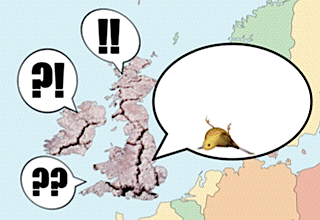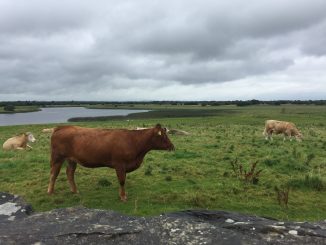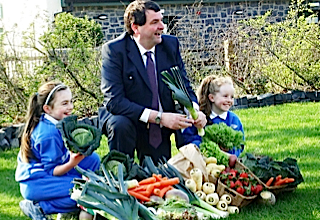In a recent post, ARC spotlighted a small farmer large farmer divide in Ireland, one with policy implications in the current CAP negotiations.
The mainstream agri-food lobby, with its emphasis on ‘productive’ farmers, also faces opposition from environmental activists. Environmentalism, however, is at a fairly low ebb in Ireland at present.
The Irish Green Party was decimated in the previous election. They were a very minor party in government, at a time when the economy nose dived and economic sovereignty was lost. In government, a very able minister grew the organic sector while also spearheading other very positive agri-food initiatives.
None of this impressed the electorate however, who blamed the Greens for propping up the main party in government, Fianna Fail, who were mired in scandal, considered far too close to property speculators, and whose economic policies over many years led to the eventual loss of Irish economic sovereignty, a destroyed economy, the return of mass unemployment and emigration. In this context, the Greens were collateral damage in an election that saw the biggest changes in parties if not policies in many decades in Ireland. There are now no Green Party elected representatives in the main decision making chamber of the Irish Parliament.
In this political vacuum, civil society has the opportunity to step up. Thus far, however, the reply has been fairly muted: huge sections of the population largely sees ‘the environment’ as an issue surplus to requirements, whatever about the objective facts of biodiversity loss, polluted water, climate change and Ireland’s role in these problems.
There is however An Environmental Pillar, a coalition of 26 Irish environmental NGOS. These include conservation, economics, environmental and more simgle issue organisations; so An Taisce (The Irish National Trust) FEASTA (an economics and sustainability think tank) Friends of the Earth Ireland and the Irish Seed Savers Association and others are members. Members of Birdwatch Ireland often lead the negotiations with government and write policy documents for the Pillar.
‘We want to ensure that CAP payments deliver more for small farm holdings and marginal farming communities which are most in need of support and where farming is particularly important for maintaining biodiversity,’ said Anja Murray, spokesperson for the Environmental Pillar, before a meeting with Irish parliament representatives on CAP reform in December.
‘Many of these farm holdings are facing abandonment. Continuation of farming depends on sufficient support through CAP, yet much of Ireland’s negotiations on CAP favour the most intensive farm producers,’ she continued.
The Pillar has produced an excellent briefing document on the CAP. This concludes “There is an inconsistency between high level of ambition for increasing the value of agricultural outputs, much of which is dependent on Ireland’s ‘green’ reputation, and the low level of ambition on meaningful delivery of environmental measures such as those supported by rural development spending. It is in Ireland’s interest to address this inconsistency and seek to ensure that Pillar II funding is not cut.”
Its main points are:
- 50% of RD fund should go to targeted agri-environment schemes and measures. These have proven delivery to address known environmental issues.
- Farming within Natura 2000 needs to be given targeted support as farmers in these areas face special challenges and need to be incentivised to meet these challenges successfully.
- High nature value farming needs to be supported through a targeted Pillar 1 scheme as well as through specific supports as part of Pillar II.
- Ireland should seek higher co-financing for environmental measures under Pillar II to support marginal farming and associated natural habitats.
It also points to opportunities under CAP to develop agroforestry (Pillar I greening and rural development supports), co-financing of environmental measures under Pillar II, better fund distribution through a flat rate payment – internal convergence – but not until 2019 to allow for time for adjustment, improved training and supports in rural development and forestry.
As we have seen however, there are serious pressures on all of these areas in the current negotiations.
There are also timely opportunities to start to act – to go M.A.D. and meet a deputy.
Written by Dr. Oliver Moore







1 Trackback / Pingback
Comments are closed.